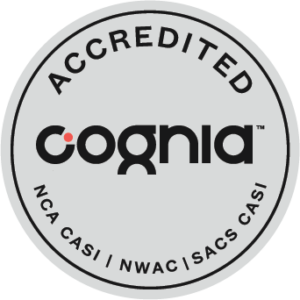The U.S. is currently ranked 14th internationally in education. There is ongoing debate in our nation over eliminating the traditional summer vacation to extend student learning in order to help our children be more competitive in the global economy.
When the nine month school year was first designed over one hundred years ago, its sole purpose was to allow children of farmers to work the harvest with their families. Although we are no longer a farming nation most schools still run on that same outdated calendar.
While the debate goes on, it doesn’t take much logic to understand why summer programs are growing and why they work; kids needs more time to focus on building foundational skills. Academic standards are rising, yet the time in the classroom for students hasn’t changed. Summer school programming, whether it be tutoring or taking credit classes, is showing consistent results in raising student achievement rates.
However, summer programming that uses group instruction does not deliver the full opportunity that summer academics can offer. Summer programming is alternative education, outside of the traditional schooling model. The true power of an alternative school model is the ability to tailor instruction to fit the individual student. To provide maximum value to the student, summer instruction should be delivered one-on-one, one teacher working with one student.
Here’s why.
The Student Works on the Foundational Skills They Need
Summer curriculum should strengthen a student’s basic foundational skills in math, reading, and writing. Classroom teachers must cover required curriculum, making it difficult or even impossible to stop and help a single student who lacks a foundational skill. Summer gives an opportunity to address foundational skill gaps in a focused and positive fashion. However, many group programs offer generic skill building courses for the summer, which means students waste time working on skills they have already mastered. A good summer program will assess foundational skills so students focus their time on building areas of weakness.
The Student, Not the Class, Sets the Pacing
In the traditional school setting the classroom is managed by keeping all students at the same point in the curriculum. This also happens when students work in groups in a summer program.
A good summer program will let the student’s learning needs, not the group’s needs, drive the pace of instruction. If a student needs to slow down to master a skill, in an individualized summer program they have the time. And if they are ready to accelerate, they are not waiting on other students to learn the content before moving to the next skill.
The Student Always Has Teacher’s Full Attention
Classroom settings and even small group instruction cannot accommodate and monitor the learning needs for each and every student. Summer programs that provide one-on-one instruction, one teacher working with just one student, ensure the student gets exactly what he or she needs. In a one-on-one instructional model, a student is no longer forced to compete for the teacher’s attention and it’s impossible for the student to be overlooked or “fall through the cracks”.
Failing Students Get the Support They Need to Graduate
Students who fail a required class in high school become a graduation risk. A failing grade may force a student to double-up on core classes in the up-coming high school years. That is a ton of stress in an already hectic schedule and depending upon the subject matter, may make it difficult or impossible for the student to succeed with more challenging content.
Summer programs remove that stress, but most likely only if delivered by a live teacher, one-on-one. A student that fails a required course probably has some foundational skill gaps. With online course or summer school in a group setting, the student does not get the instructional focus needed to evaluate the root cause of why they failed the course during the school year. An online high school course may be enough for a student to rectify a failing grade, but it cannot provide the instructional depth needed to prevent problems in the coming school year.
College Prep Students Can Progress Faster Through High School Requirements
A summer course taken from an accredited school goes on a student’s transcript. It will be honored by any school in the nation and by colleges. Summer is an excellent opportunity for the college bound student to earn high school graduation credits. By earning needed credits over the summer, they may move to running start program or college level course work earlier while still in high school. The savings in college tuition will most likely off-set any cost incurred by paying for high school credits over the summer.
Individualized summer programs give a student time in their ideal learning environment. Individualized instruction not only builds skill competence and student confidence, it also gives a student self-awareness of their learning needs, interests, and future goals. Every student is unique, so educational self-awareness must be developed in a personal, one-on-one instructional model. And educational self-awareness is a skill our students truly need to be competitive in a global economy.




Leave a Reply